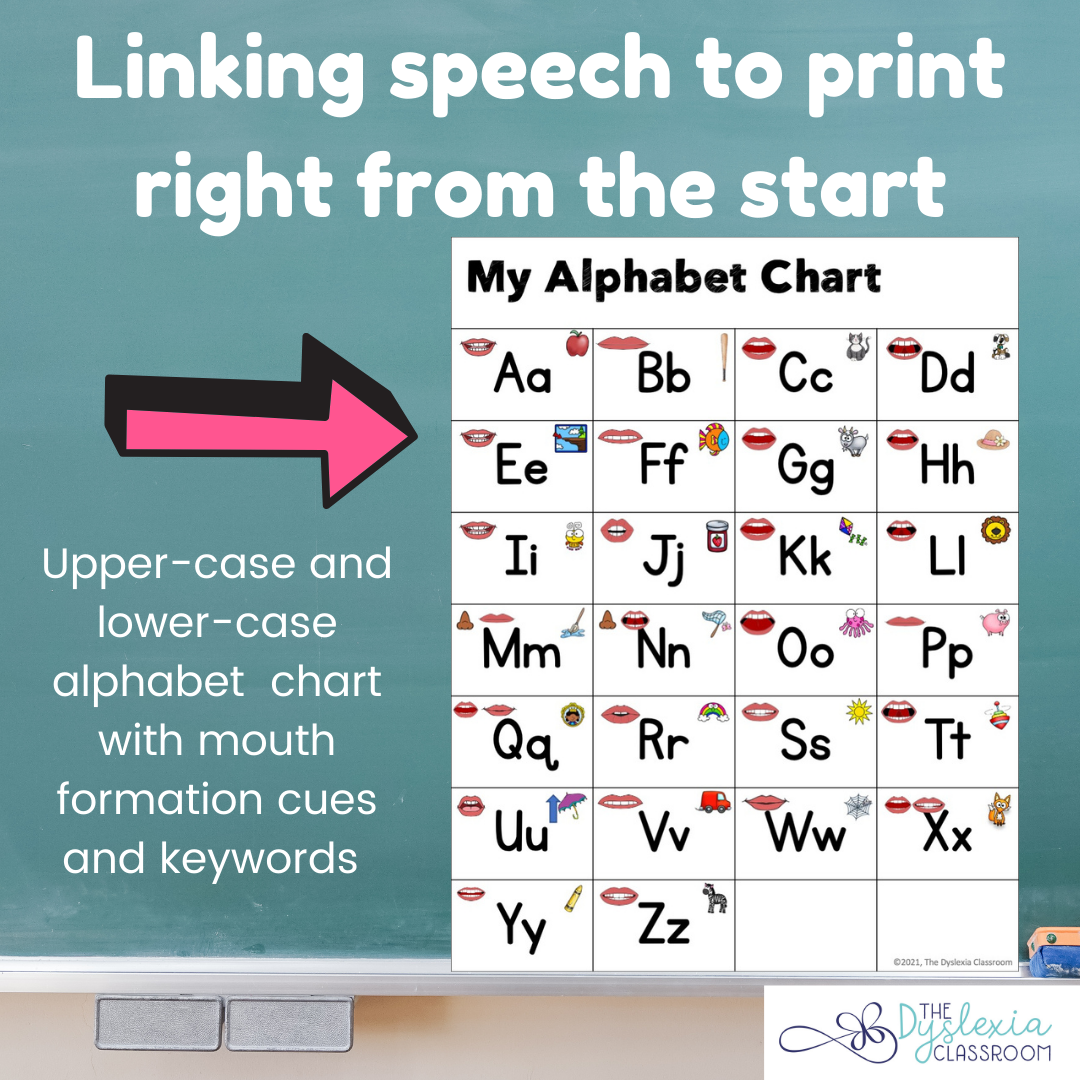From Minimal Pairs to Word Chains: The Speech-Literacy Connection We Can't Ignore
Co-Written by Leanne Dall, MHSc., CCC-SLP, and Casey Harrison, LDT, CSLDS, CALT
*free video link below*
Word chaining has been around for decades, but there's a renewed spotlight on why it's so powerful, especially in the early stages of reading and spelling development. A word chain is essentially a sequence of minimal pairs that we use to improve reading and spelling by focusing on how sounds (phonemes) and letters (graphemes) work together to form words. As we've been reflecting on its impact in light of our newly released CVC Links & Ladders Word Chaining Deck, one truth keeps resurfacing:
Word chaining and minimal pair work share the same phonological roots.
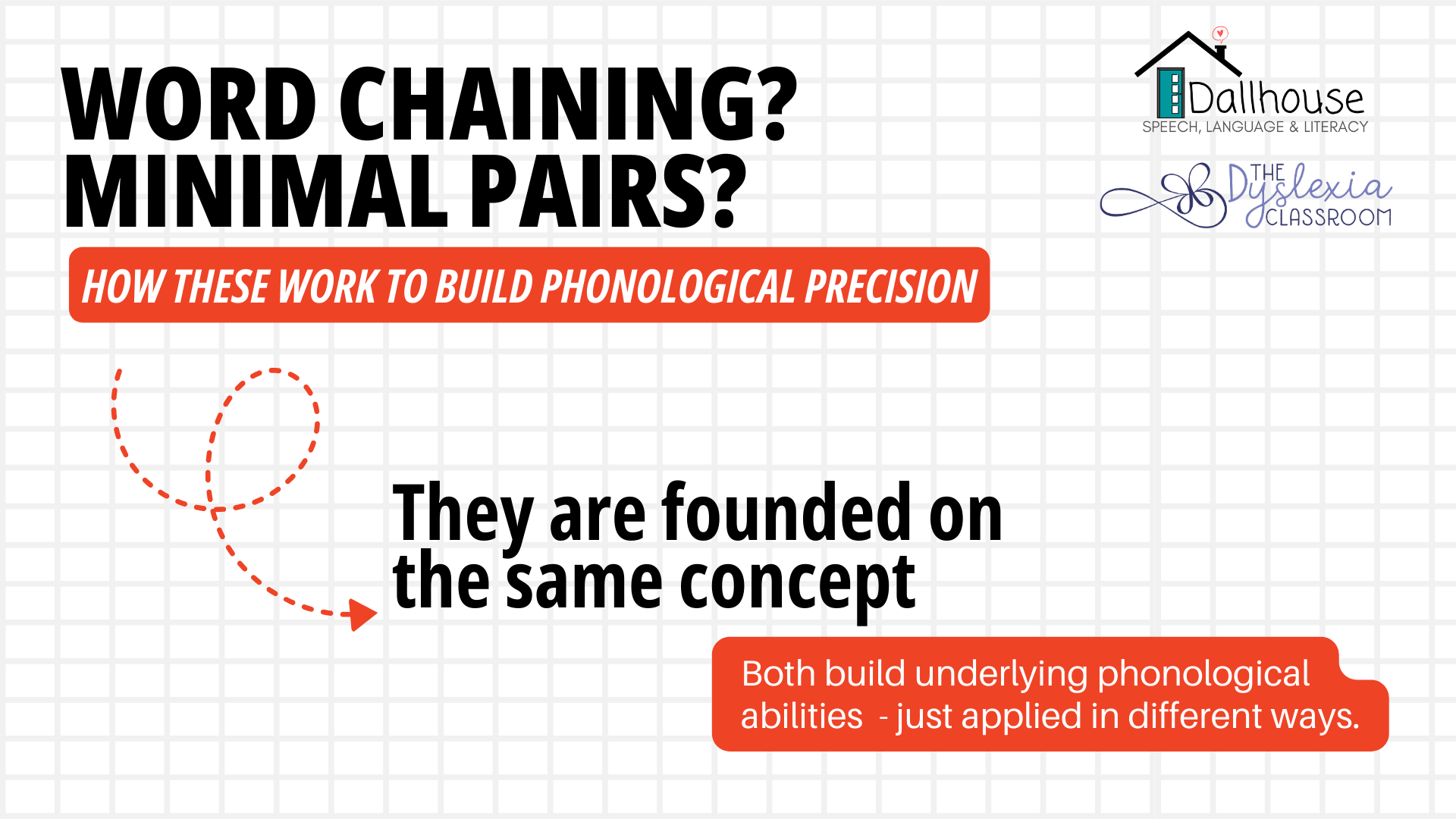
And when we recognize this, our instruction becomes more efficient, more aligned, and more effective.
The Speech–Literacy Link: Why Contrastive Pairs Matter
In speech therapy, SLPs may rely on contrastive phonological approaches, such as minimal and maximal pairs, to spark phonological learning. The minimal pair appro...
3 Easy Ways To "Gamify" Your Structured Literacy Lessons

One of the biggest misconceptions and things that I hear, and you may as well, is that the science of reading is a new fad or just phonics. The reality is that the instruction that we have used for years with dyslexic learners is the "science of reading" come to life. The collection of research that is the science of reading is not new. We have decades of research and evidence about teaching reading, and we know that it is a complex process with many different components. Structured literacy covers all of the elements of literacy instruction.
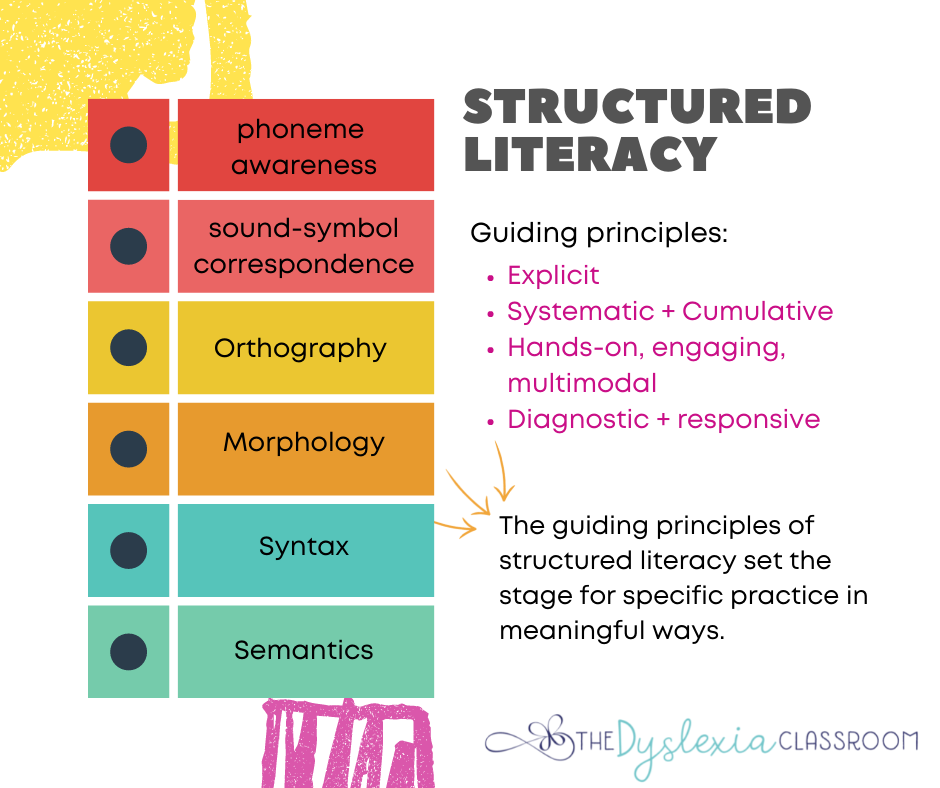
The umbrella term, Structured Literacy, was coined by the International Dyslexia Association to describe effective reading instruction that is essential for students with dyslexia and beneficial for all. Structured literacy (SL) encompasses more than phonics. It addresses language at all levels: sounds, spellings for sounds and syllables, patterns and conventions of the writing system, meaningful parts of words, sentences, paragraphs, and disc...
Knowing the Hidden Impacts of Dyslexia
Even though the official Dyslexia Awareness Month is ending, it remains a daily topic of conversation and concern for those impacted by dyslexia. I encourage you to continue discussing dyslexia, reading instruction, and the science behind learning. We want to bridge the research to our instructional practices and address social and emotional wellbeing to provide the best outcomes for dyslexia learners. For this reason, I want to revisit this blog which addresses the hidden impacts of dyslexia.
As educators and parents, we often hyper-focus on the academic components surrounding reading and writing for dyslexic learners. This makes sense because dyslexia shows itself in the educational setting. And yet, there is so much more that dyslexia impacts. Unknown to most people, many impacts of dyslexia reside below the surface, hidden from view, yet their effects can be profound.

This image 👆 is a powerful reminder that what you see isn't the whole picture. This is especially true for o...
Did You Know That October is Dyslexia Awareness Month?
October is Dyslexia Awareness Month! Do you know that dyslexia is a topic around the globe? It's true!
Dyslexia impacts people across all languages, races, socio-economic statuses, and genders. While the prevalence rates for dyslexia may vary somewhat across writing systems, there appears to be core deficits across writing systems in the area of phonological deficits (Goswami, 2015).
I have had conversations with people worldwide regarding dyslexia and its instructional and emotional impacts on our children. We are all seeking the best ways to help close the reading gap and meet student needs in a way that preserves their emotional well-being and sets them up for success.

Unfortunately, there are still people and scholars that think dyslexia does not exist. To that, I say, look at the brain neuroscience, the fMRI, and the years and years of research about dyslexia, and then #saydyslexia because our children deserve to have educators and our society understand their journey.
My...
Why Use Audiobooks with Dyslexic Learners?
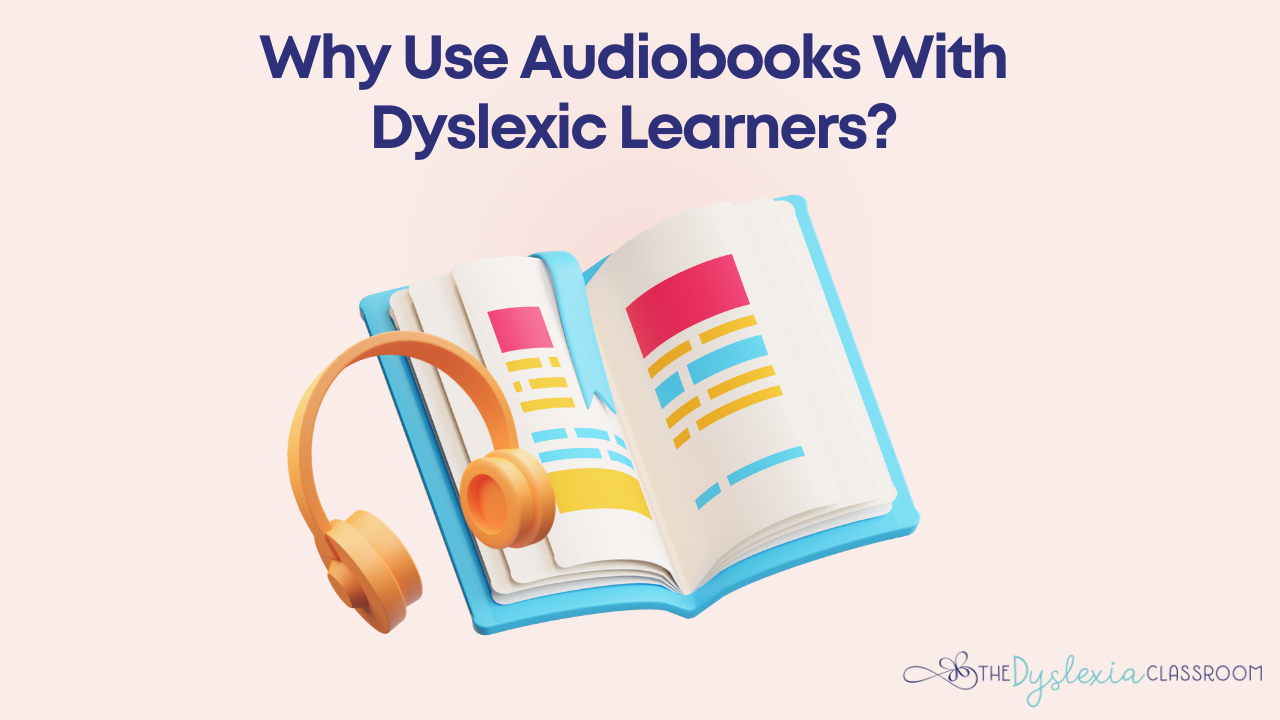
The topic of audiobooks comes up often and is an accommodation that I recommend for all of my students. Audiobooks have gained popularity among the general population, with 1.3 billion dollars in 2020. While audiobooks are an excellent tool for anyone, they provide additional benefits for those with dyslexia or other learning differences. We know the importance of becoming literate in our society, but how do audiobooks weigh into our children's reading goals? Let's dig into some of the benefits and possible obstacles.
Benefits of Audiobooks
Audiobooks provide access to grade-level and higher-level text
Why is this important? We need to provide students with the tools to access the curriculum. Audiobooks provide this bridge. Students are given audiobook access for curriculum reading for multiple reasons.
Audiobooks level the playing field
Audiobooks are an accommodation that helps ensure our dyslexic learners can access the curriculum. It levels the playing field as students work ...
How To Build Phonemic Awareness In A Fun Way

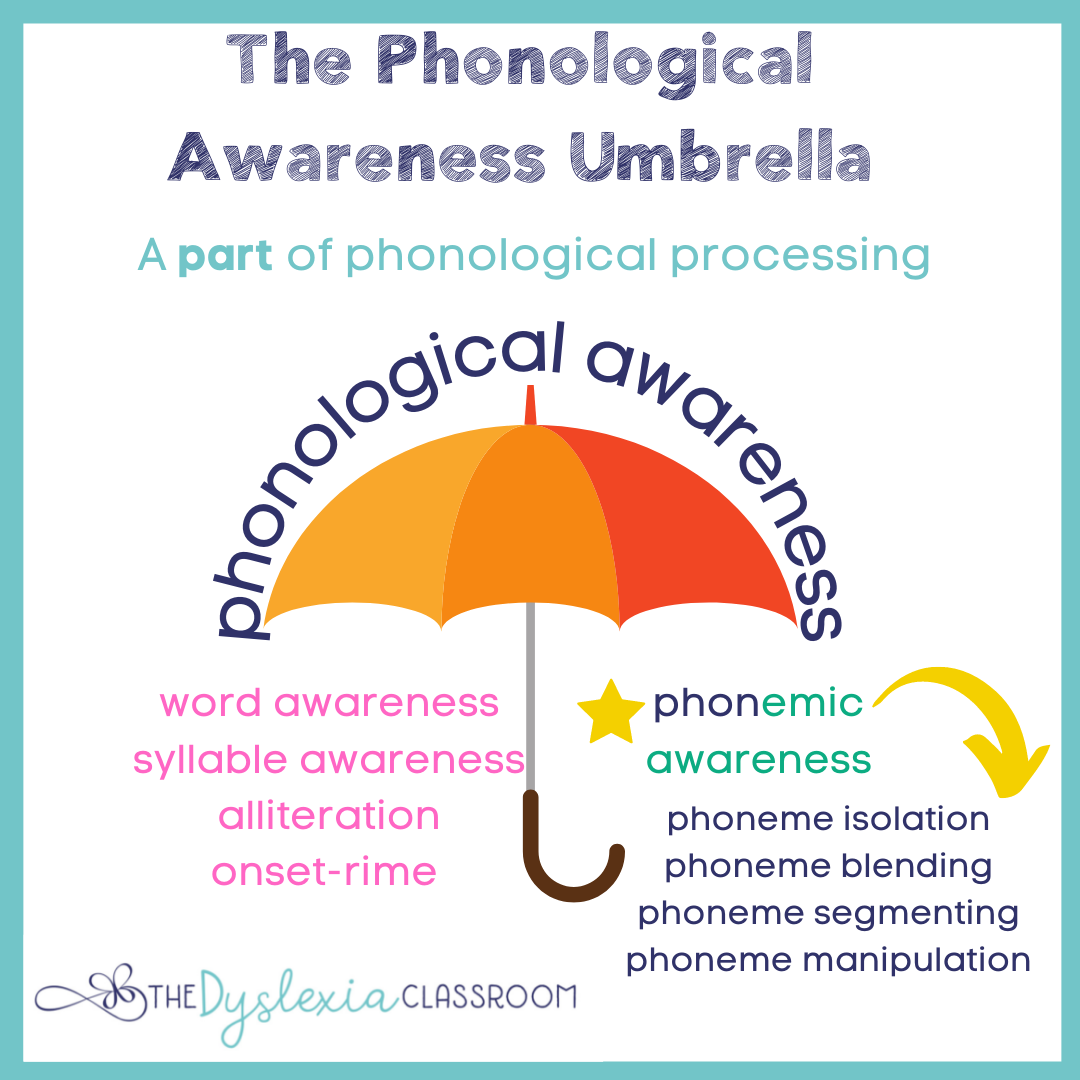
10 Books Every Dyslexia Educator Should Own
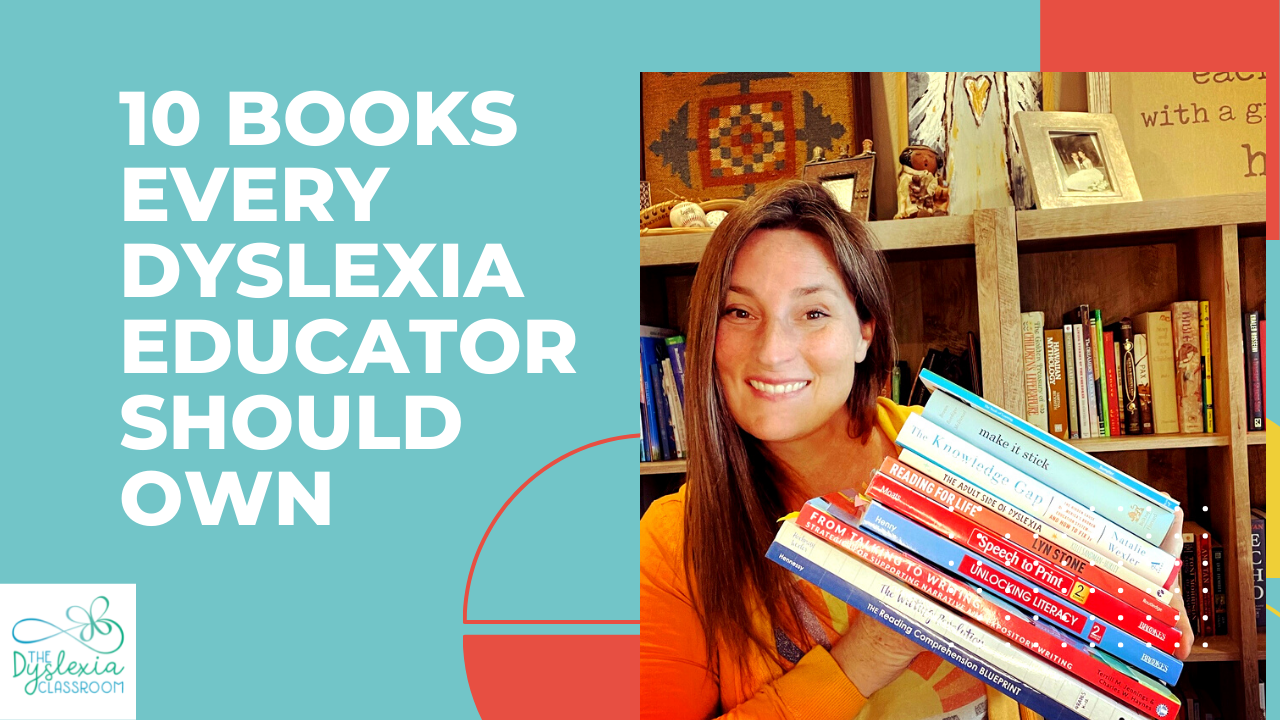
If you are anything like me, you ran out of space on your bookshelf a long time ago but can't stop buying books! Seriously though, as educators, I believe that we are lifelong learners, and therefore, I tend to seek out books that further my knowledge and help me improve my craft of teaching.
If you follow me on Instagram, you will often see me sharing books for educators and students. In October, I shared my list of books every dyslexia educator should own. Read it HERE.
Now, I'm sharing ten more books about literacy, writing, learning, and dyslexia that I think are worth the reading.
Working memory is a topic that often comes up in meetings with parents and schools surrounding dyslexia. Some children have a learning profile that indicates a need for further assistance with working memory. You can catch an entire episode on working memory on the Together in Literacy podcast. Find the episode HERE.
The first two books I recommend are an excellent way to dive into this topic.
...Is there a link between reversals and dyslexia?
While we want to be alert for the early indicators of dyslexia, there continues to be some misunderstandings surrounding reversals and dyslexia. One of the most frequent questions I receive from parents and educators alike is, "Is there a link between reversals and dyslexia?"
While many people identify reversals as a dyslexic trait, this is not a characteristic associated with dyslexia. There is no evidence that dyslexic minds see or read letters or words backward. In addition, dyslexia is not caused by a problem with vision but is linked to a phonological processing deficit. See the International Dyslexia Association definition on dyslexia below ⬇️.
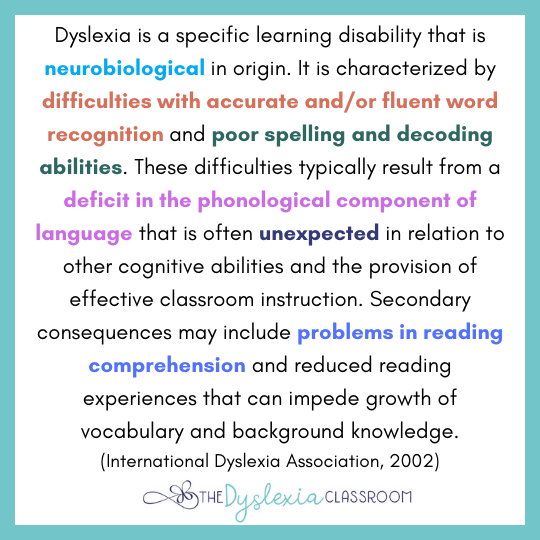
Reversals and Handwriting Development
Many children reverse letters as they begin to learn to read and write. As students learn letters and handwriting skills, we may see letter reversals until age 7 to 8. This is a normal age range for children to still have some reversals in their handwriting. Backward writing and reversals are co...
What Research Says About Articulatory Awareness in Reading Instruction
This week on Instagram when I shared the alphabet chart I use with my early learners, including mouth formation cues and corresponding keywords, I received a question about the research behind articulatory awareness regarding reading instruction. It is so important that our work be grounded in current research, so I appreciated this question and want to address it here.
In my work with students, we focus on the speech-to-print approach. I explicitly teach phonemes, or those individual speech sounds, to students. We begin by introducing the sound and connection to the mouth formation. Research shows that our brain makes memory traces of sounds by paying attention to our mouth formations. When we begin with this sound, we're laying the foundation for knowledge of graphemes. This articulatory awareness anchors our phoneme-grapheme correspondences.
Obviously, I am a big proponent of beginning my literacy instruction by focusing on speech production and then linking that knowledge to t...
Top Teacher Tips for Parents To Help Students Study at Home
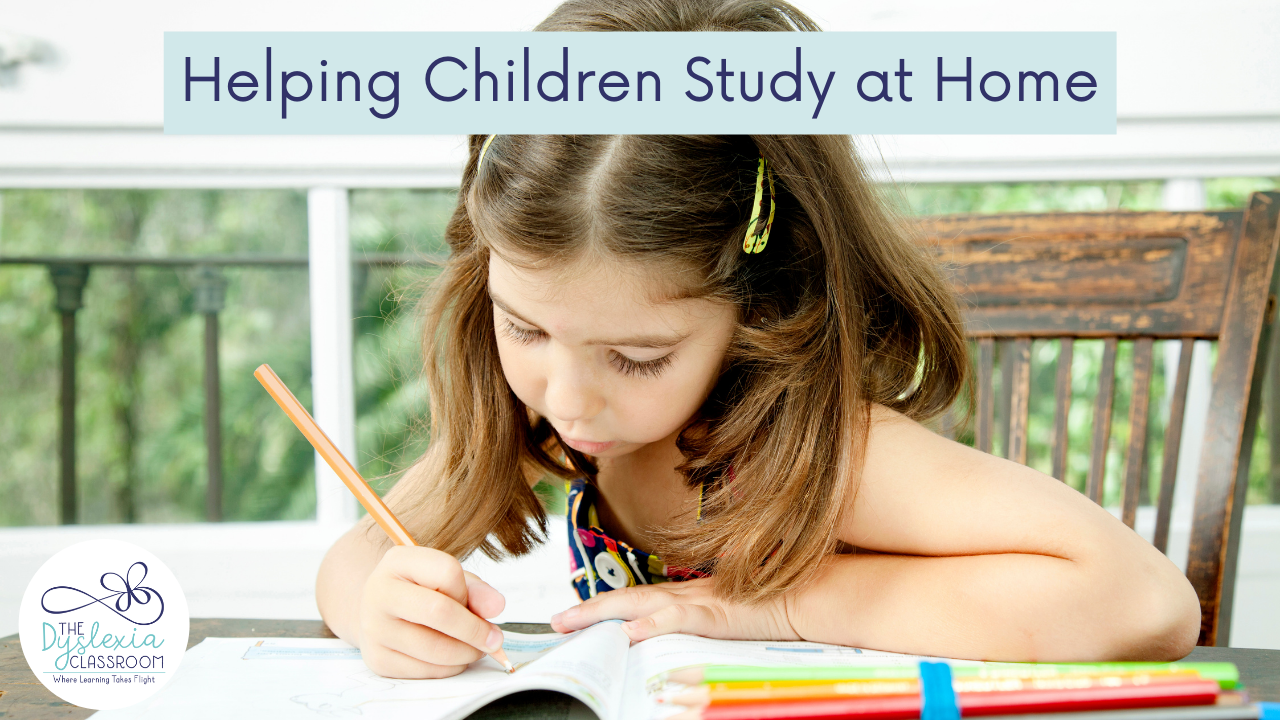
This week, I'm sharing 7 tips to help children study at home. As a teacher or practitioner, you might not find this post relevant, yet it is. Not only will these tips help parents who read this post, but as educators, we can continue to support our students by suggesting these strategies be put in place at home as we work with families in establishing good study skills that align with students' needs and that move learning forward.
Use Time Wisely
Setting aside designated time to work on assignments, papers, etc. is a good habit for all students but can be especially needed for students who require extra time to process information or complete tasks. Setting a timer and working on an assigned task within that time frame can help keep students focused on the task at hand. If the timer dings before the job is complete, take a mini-break or continue working if appropriate.
Ask for Assignments Ahead of Time
Just as our children may need extra time on assignments and tests during schoo...


